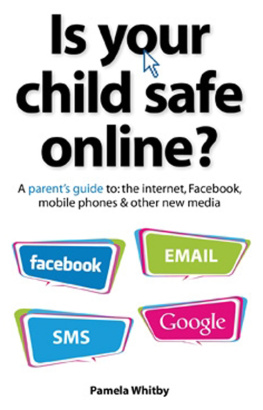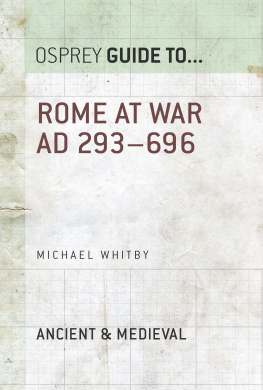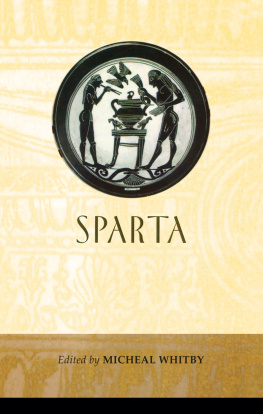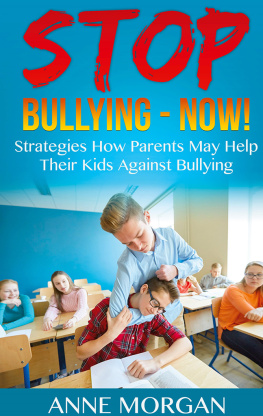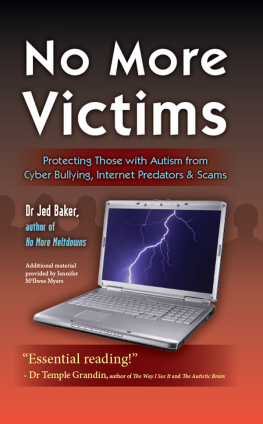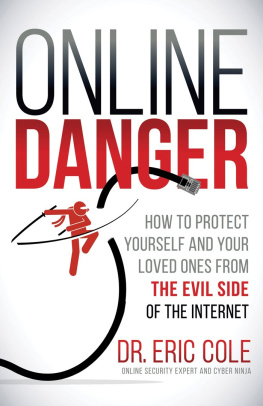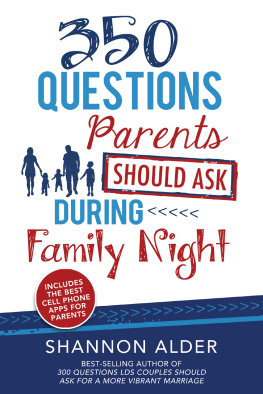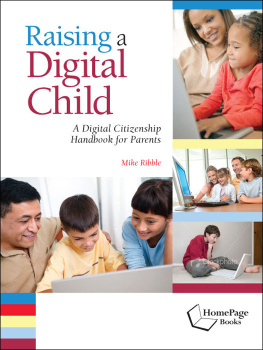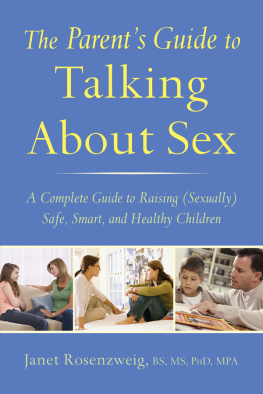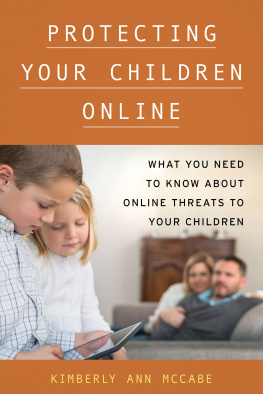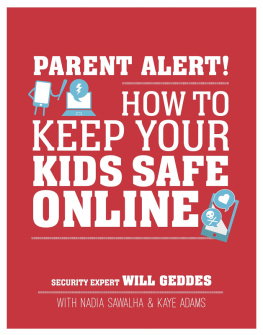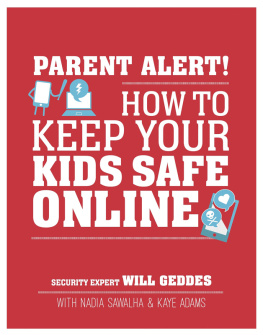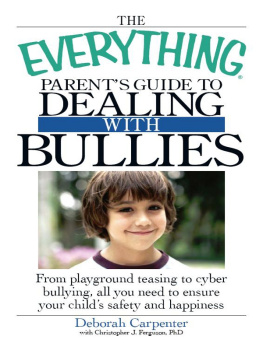Is your
child safe
online?
A parents guide to the internet,
Facebook, mobile phones &
other new media
Pamela Whitby

Is your child safe online? A parents guide to the internet, Facebook, mobile phones and other new media
Is your child safe online?
Pamela Whitby
This first edition published in 2011 by Crimson Publishing, a division of Crimson Business Ltd., Westminster House, Kew Road, Richmond, Surrey TW9 2ND
Pamela Whitby 2011
ISBN: 978 1 90541 095 8
The authors Pamela Whitby have asserted her moral rights to be identified as the author of this work in accordance with the Copyrights, Designs and Patents Act 1988.
British Library Cataloguing in Publication Data
A catalogue record for this book is available from the British Library
All rights reserved under International and Pan-American Copyright Conventions. By payment of the required fees, you have been granted the non-exclusive, non-transferable right to access and read the text of this ebook on-screen. No part of this text may be reproduced, transmitted, downloaded, decompiled, reverse engineered, or stored in or introduced into any information storage and retrieval system, in any form or by any means whether electronic or mechanical, now known or hereinafter invented, without the express written permission of Crimson Publishing ebooks.
Epub file created by RefineCatch Ltd, Bungay
Contents
This book would not have been possible without the input of a number of people. Thank you to all who generously gave their time to share stories, insights, expertise and research, who responded to countless email queries and even read chunks of the text for factual accuracy, content and readability.
They are: Shirley Atkinson, Lance Bellers, Hannah Bickers, Teresa Bliss, Christopher Boyd, John Carr, Yvonne Chapman, Sarah Crouch, Rik Ferguson, Shane Gallagher, Will Gardner, Mark Griffiths, Kate Hamshar, Mike Hawkes, Linda Hillier, Graham Jones, Martina Jones, Chloe Kelly-OMeara, Adam Liversage, Sonia Livingstone, Elena Martellozzo, Marian Merritt, Dave Miles, Marie T Molinet, Rebecca Newton, Alana OSullivan, Maureen OSullivan, Sean Richardson, Tim Riches, Jrme Valette, William Webb, Kate Wilson, Clint Witchalls.
I am particularly indebted to Basil Lawrence for his detailed page edit and illuminating suggestions and insights and Dave Miles for reading the book and his cover quote.
For obvious reasons, there are also a number of people who prefer to remain anonymous. A huge thank you to all of you for providing the diverse human backdrop that makes this such a fascinating subject. In particular I would like to thank all the children and teenagers who took part.
Thanks also to Beth Bishop at Crimson Publishing for her support.
Finally, I must thank my children, Neve and Calum, for testing some of the technology and for putting up with a grumpy Mum when the early starts got too much. I hope what I have learnt benefits them. And finally, thanks to my lovely husband Fergus Clegg for wholeheartedly supporting my decision to take on what has been a very interesting and rewarding project.
Can you remember a time when a mobile was for telephone calls and texting, a computer was a glorified typewriter and tweeting was what birds did on a spring morning? It was not that long ago. But new developments in technology are happening daily and are radically altering the world we live in and the way we interact with each other. Such forces are changing the face of business, education and society forever and are sweeping the emerging generation our children along with them.
Technology is now an integral part of our childrens lives and it is here to stay. Globally there are 84 million under-17s online each day. And closer to home the popularity of our webbed world is growing apace. Only a few years ago, the average age for a child in the UK to begin accessing the internet was nine. Today they are as young as five.
Herein lies the big issue: how much do parents really know about this new generation of technology? We hear stories in the media of cyber-bullying, the early sexualisation of childhood, of predatory paedophiles, and the ills of social networking.
But do we know how our own children are using this technology? More importantly, are we doing enough to keep them safe?
It dawned on me that the only way to tackle this complicated subject would be to talk directly with children. I started by interviewing a group of 17-year-olds. My admittedly unscientific thinking was that if they the first survivors of the so-called screenager generation were willing to talk, they would know better than anybody what parents today should be worrying about.
A friends teenage daughter agreed to rope in some friends and one afternoon an intelligent, diverse and internet-savvy crowd shared their views with me. By the end of three exhausting, enlightening (and at times shocking) hours I felt I had heard and seen it all.
They regaled me with some pretty grim stories of cyber-bullying taken to extremes and Facebook postings gone horribly wrong. Together we logged onto Chatroulette, an eye-popping website where men and women and even apparently unmonitored children claiming to be 12 years old use webcam with live chat where some even expose themselves. I was introduced to fraping, or Facebook raping, and shown that YouTube works as a social network.
If that was not enough to take on board, they saddened me by describing how easy access to pornography puts pressure on their relationships, body image and self-esteem and how worried they were about the rise of pro-anorexia and bulimia websites. While these children clearly love using technology and their lives depend on it they recognise it isnt all good.
So what would be their top tips for parents? The answer seemed wise beyond their years.
Talk to, but more importantly listen to, your children, give them freedom but have boundaries too, and be careful with your credit card.
Advice from teenagers
Since that afternoon I have interviewed a wide range of people, from internet and educational psychologists to teachers, IT professionals, academics, criminologists, industry representatives and, yes, more children in the five to 16 age range. What they all (perhaps bar some of the children) seem to unequivocally agree on is this: communicating with your child about online safety is the most powerful and effective tool we parents have.
FACT
One in four children still think they know more about the internet than their parents.
Nearly half of UK parents do not have any filtering or monitoring software installed on their computers.
We parents also seem to want to believe in our childrens innocence. The same research finds that of the children who admitted to seeing sexual images online, 40% of their parents said they had not. When it came to children who had met an online stranger offline, 61% of parents did not believe it.
Where does this leave parents?
It leaves us in a world changing at eye-watering speeds, where ever younger children are accessing the internet and where new risks are emerging all the time. Aside from the social risks such as cyber-bullying and the commercial risks such as online identity theft, there are other potential ticking time bombs. Among these are the early sexualisation of childhood, the threat of user-generated content (pro-anorexia, bulimia and self-harm websites), addiction to screens and the possibility that internet use could be changing the way our children think. The impact of all these on society is not yet clear and may not be for some time to come.

